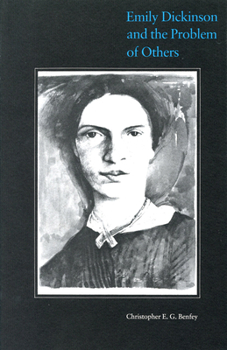Emily Dickinson and the Problem of Others
In this well-crafted study, Christopher E. G. Benfey seeks to demonstrate the depth and coherence of Dickinson's thinking. He is concerned primarily with Dickinson's relation to skepticism, and he shows how her poems provide responses to the claim that we do not have access to the natural world or to other people. While granting the "truth" of skepticism--that we cannot know with certainty that the world exist, or exists as we experience it--Dickinson suggests that our ties with the world are deeper and more intimate than the ties of knowledge. One of her key terms for this intimacy is "nearness," and her poems give sustained attention to the problems encountered in our seeking intimacy with other people. Benfey also examines the complex place of privacy in Dckinson's work, in terms of both the writing and the reading of her poems. By looking at the beginnings of privacy law, early sociological attempts to define privacy, theories of poetry that stress privacy, and more recent philosophical discussions of privacy, he is able to provide a useful historical context for reading Dickinson's poetry. Benfey differs from previous critics in his willingness to accord Dickinson's poetry a philosophical depth and ambition that we are discovering in the writing of Emerson and Thoreau.
Format:Hardcover
Language:English
ISBN:0870234374
ISBN13:9780870234378
Release Date:September 1984
Publisher:University of Massachusetts Press
Length:144 Pages
Weight:0.80 lbs.
Dimensions:0.7" x 5.7" x 8.8"
Customer Reviews
0 rating





